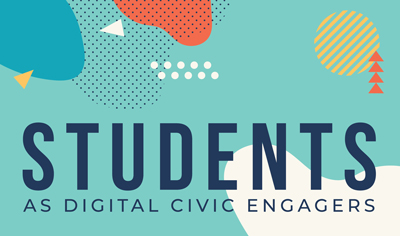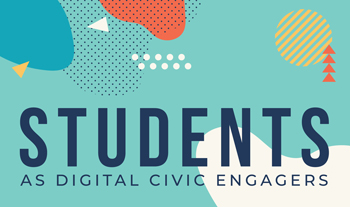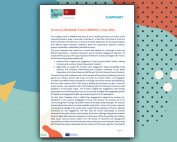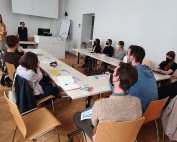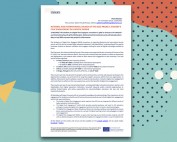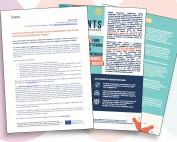More about Students as Civic Engagers
 CIVIC ENGAGEMENT
CIVIC ENGAGEMENT
Active citizens form the backbone of a strong democracy, sustainable growth and an inclusive society. In addition, the process of becoming civically engaged – using one’s knowledge, skills and values to address public concerns and promote the quality of life in a community or neighbourhood is satisfying and beneficial: 33% of students in the UK currently volunteer and 60% say that developing their skills is an important factor in their decision.
THE ROLE OF HIGHER EDUCATION INSTITUTES
HEIs encourage civic engagement either as an optional activity (extra-curricular activities) or (less often) as part of their study programmes (earning credits) offering engagement methods such as volunteering in a student union, in mentoring, or engaging in service-learning. However, against the background of the current pandemic and resulting European solidarity movement, there are strong arguments in favour of awarding civic engagement a larger role, not as a “third mission” activity but intrinsically linked to the quality of teaching/learning across all disciplines.
Researchers have found “a consistent and statistically significant relationship between civic engagement and academic engagement”. Students who engage in civic issues engage in academic praxis, linking theory to action; they strengthen key competences of critical thinking, communication and collaboration; and they develop emotional intelligence and conscientious empathy as part of a community.
PROJECT ACTIVITIES
The first tangible results of the project will be the intellectual outputs which will be used by HEIs in their educational programmes with students:
-

IO1: GUIDE TO DIGITAL CIVIC ENGAGEMENT. A comprehensive publication which makes a clear case for the relevance of Digital Civic Engagement, how it relates to both pillars of teaching and academic outcomes, and how it can be taught effectively in Higher Education.
- IO2: DIGITAL CIVIC ENGAGEMENT TOOLKIT. The Toolkit will provide practical guidance and tools for HEI educators and lecturers, wishing to incorporate Digital Civic Engagement activities into their curricula/teaching strategies, with a particular focus on increasing their confidence in using digital tools.
- IO3: DIGITAL CIVIC ENGAGEMENT SYLLABUS & OERS. Including a syllabus, learning objectives, lesson plans, assessment guides, and access to a variety of original teaching content and pedagogies (experimental learning, problem-based learning, service learning).
- IO4: DIGITAL CIVIC ENGAGEMENT MOOC. Based on the OERs, this open online learning course provides students & staff with an additional space in which to develop their digital civic engagement skills in a user-friendly format, as well as to explore follow on projects with their peers.
